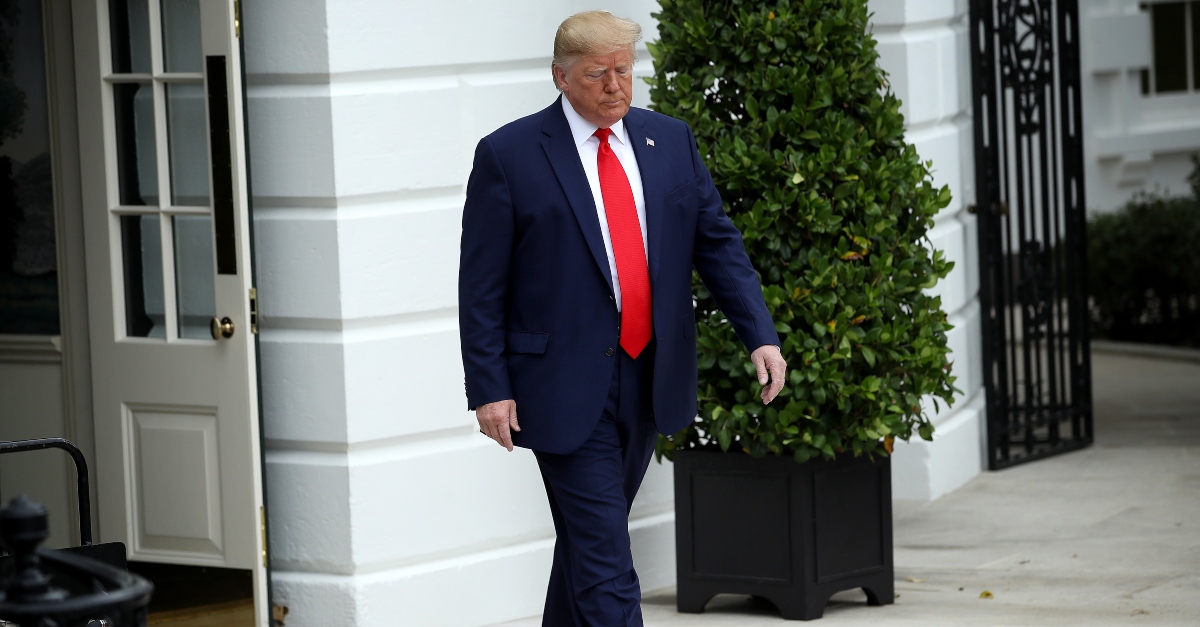
President Donald Trump has proposed a number of outside-the-box solutions to combat illegal immigration from Mexico, reportedly including fortifying the southern border with a snake and alligator-filled moat, erecting an electrified fence, and suggesting that U.S. officials shoot migrants in the legs to slow them down. The moat and electric fence never came to fruition (despite reports that administration aides sought out cost estimates), but legal experts noted that the Supreme Court on Tuesday effectively declared U.S. Border Patrol agents immune from liability for shooting migrants across the U.S.-Mexico border.
In a 5-4 decision along ideological lines in Hernandez v. Mesa, the court ruled that U.S. Border Patrol agent Jesus Mesa could not be sued by the family of 15-year-old Sergio Adrian Hernandez Guereca, who was on the Mexico side of the border when Mesa shot him in the face in 2010.
Prosecutors in Mexico charged Mesa with murder, but the U.S. refused extradition leading the teen’s parents to sue in U.S. federal court.
Writing for majority, Justice Samuel Alito said that it was up to Congress to decide whether to allow such lawsuits to be heard in federal court. Alito and the court’s four remaining conservative justices held that Mesa could not be liable for shooting someone who was not in the United States at the time of the incident due to “national security implications.”
“Since regulating the conduct of agents at the border unquestionably has national security implications, the risk of undermining border security provides reason to hesitate before extending Bivens into this field,” Alito wrote (In 1971, the Bivens court held that an implied cause of action existed where a person’s constitutional rights had been violated).
University of Michigan law professor and civil rights attorney Samuel Bagenstos was quick to recall Trump’s prior comments in the context of Tuesday’s decision.
“Remember when Trump said border patrol should shoot migrants in the legs to slow them down?” he asked, referencing an Oct. 2019 New York Times report. “SCOTUS’s decision in Hernandez means that there would be no remedy against the officers if they did what Trump wanted, so long as they fired across the border.”
In a tweet, Trump memorably denied the details about alligators, snakes, moats, and electrified fences but didn’t mention the shooting of migrants in their legs.
Several other legal experts were similarly shocked by the high court’s decision, such as Cardozo law professor Deborah Pearlstein and former federal prosecutor Joyce Vance White.
“Just so it’s clear: Mexican kid wrongfully shot at border by US Border Patrol has no remedy in U.S. federal court. 5-4,” Pearlstein wrote.
White took issue with the fact that the decision hinged on Mesa being in the U.S. when he shot Hernandez, who was just a few feet over the border in Mexico.
Justice Ruth Bader Ginsburg’s wrote in her dissent that it “scarcely makes sense for a remedy trained on deterring rogue officer conduct to turn on the happenstance subsequent to the conduct — a bullet landing in one half of a culvert, not the other.”
[image via Win McNamee/Getty Images]